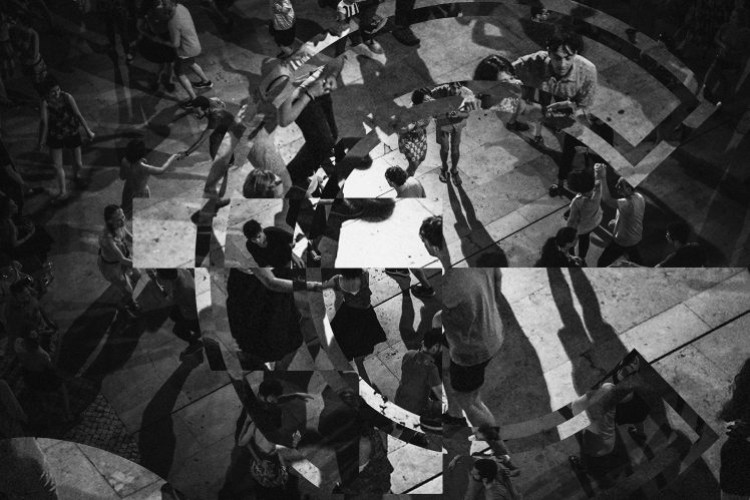
Literature may reflect real life situations faced by society, but we all know that this reflection is not always literal. In her novel, Saman, Ayu Utami created female characters with perspectives and sexual behaviors that are incongruous with Indonesia’s social norms on female sexuality. This groundbreaking work is a pioneer in Sastrawangi, a literary genre that yielded a new dimension in Indonesia’s literary scene since year 2000. There are other female writers associated with this genre, and a few women’s rights activists, including Ayu Utami herself, initially thought that this classification was not significant and sexist (Junaidi). Although it might not have been intended, the categorization seemed to imply that works of female authors cannot be integrated and would not amount to male writers.
Sastrawangi gave rise to a debate about the propriety of discussing sex explicitly (i.e. describing sexual activities, using words such as penis, vagina and onani). The issue was not merely because the books were available in public bookstores. The public was quite heated essentially because the writers were female. There have been sensual illustrations of women and discussions about sex in the media even before Saman was published, but nonetheless, they were one-sided reflections of patriarchal views on sexuality, in which a man is a desiring subject and a woman is a desired sexual object. Thus, perhaps the controversy indicated that Indonesian women’s thoughts about their sexuality were never particularly addressed before Saman was published.
Sexuality gives an individual personal and interpersonal expression – a construct of identity, desires, and roles in relationships or activities. Indonesia only lawfully accepts heterosexuality. Sexual activities that are perceived as normal by the state and major religions are also the ones performed heterosexually. Such view presupposes that sexuality has a flat characteristic. On the contrary, one’s sexuality is not always straightforward. Sexuality for each person is different and susceptible to change. For example, sexuality can be influenced by a culture such as the Warog Dance from Ponorogo. Warok dancers; all male; are not allowed to have sexual intercourse with a woman and this is one of the examples of how cultural factors can lead to homosexuality in Indonesia (Yuwana).
Another disheartening reality in Indonesia is the negative stigma and/or prejudice towards girls and non-married women who are sexually active and curious. For example, Islamic religious organizations and many people in online forums condemned female public figure (i.e. psychologists) for discussing sex openly in the media (Krismantari). I also remember from my middle school days that it was normal for boys to discuss sex-related topics. Unfortunately girls who did the same were perceived as flirty or, even worse, slutty. Clearly, there is still an unequal level of acceptable sexual behavior between genders in our country. There is also a prescriptive norm that chastity is a, or the most, significant measure of a girl’s worth. It is one of the common parameters that shape how an Indonesian woman should perceive her sexuality. Social norms have a significant impact even until the girls grow up. Some of my female friends, in their mid-20s and mostly religious, were embarrassed when discussing their sexual life even though they disclosed it to trustworthy friends. Some others discussed it without discomfort but admitted that they would not start sex-related conversations if the other person does not bring it up first.
One of the ways to break from society’s standard of behavior and to construct a new point of view about sexuality is by reading a book. Literature – along with media, arts and sciences – drives a paradigm shift. How human beings see and understand the world changes as a paradigm is developed and/or reaches a new turning point. Saman is one of the possible driving forces that can shift how Indonesians view female sexuality. The plot mainly revolves on the lives of four best friends – Yasmin, Shakuntala, Cok and Laila – who help an ex-priest escape to New York. Readers can tweak their perspective on matters relating to sexuality by examining the female characters in the novel. I will limit my discussion to two characters, Yasmin and Shakuntala.
Yasmin marries her long-term boyfriend, Lukas, not long after their first sexual intercourse. Lukas is a man whom she dated faithfully for eight years and after all those years they still have an active sex life. Lukas must change the intercourse position after four times of counts of eight and this makes Yasmin feel as though the act is no different to a wearying sport. Yasmin is a successful lawyer who uses her skills to do activism for underprivileged individuals. She is a friend to Saman, a former priest known as Wisanggeni, who helped poor farmers at the Lubukrantau region, Sumatra. Yasmin helped him leave for New York after Saman was captured and tortured by the army, due to his involvement in the farmers’ protest against the coalition of plantation owners. On the eve of his departure, Yasmin and Saman are alone in a hotel suite at Medan where they hide from the authorities. Starting from physical tenderness of comforting each other prior to the farewell, the closeness grows into intercourse. There Yasmin unleashes her desire for dominance, as Saman described in his diary. After Saman resides in New York, They exchange emails talking about their erotic fantasies. Here is one of them:
“Saman,
Tahukah kamu, malam itu, malam itu yang aku inginkan adalah menjamah tubuhmu, dan menikmati wajahmu ketika ejakulasi. Aku ingin datang ke sana. Aku ajari kamu. Aku perkosa kamu.”
(Utami, p.195)
In that email, Yasmin mentions how she would like to teach Saman. A teacher is in charge when he/she instructs students. In that way, what Yasmin meant by teaching is exercising control over Saman sexually. This desire is reinforced in her last sentence, where she says she wants to rape him. This request to do a violent sexual act is quite shocking and puzzling. However, with deconstructing the violent nature of the act, perhaps rape is used in this phrase to illustrate how much Yasmin wants to take control of her sexual activity with Saman; similar to how a rapist would dominate during an assault. This desire keeps haunting Yasmin that she still imagines Saman while she sleeps with Lukas.
Having been raised in a Catholic family, Yasmin’s perspective of sex is shaped by religion and the norms within her family. Unfortunately, those norms are at war with her genuine sexual preference. This incongruity makes Yasmin feel guilty about her affair, in which the governing influence of her religious values is evident. Yasmin, aware that she slept with an ex-priest, questions whether she was wrong for seducing Saman, even though her desire emerged naturally. The author is certainly not implying that a married woman cannot dominate her husband in bed, thus satisfying her sexual desires with having an affair. This character simply highlights the desire for sexual authority existing naturally in a woman and of the paradoxical dilemma that might surface when the need is not met.
By contrast, Shakuntala is a female character that believes she owns her body hence her sexual activities are not bounded by social norms. She has intimate relationships with men and women even though, according to the 1990s setting, homo/bisexuality was still very much condemned by most Indonesians. Shakuntala consciously gave away her virginity at a young age because she thinks that virginity should not be distinguished as a factor in how a woman values herself. A woman might feel unnecessary remorse about it when she is no longer a virgin. Thus, the individual herself should make decisions regarding her own sexual behavior. For example, Shakuntala did it for love instead of a mere holy union.
Ayu Utami made an analogy on how Shakuntala, a Javenese dancer, perceive her sexuality with the character’s notion about dancing. She realizes that her life is for dancing within herself, detached from the music and not for others’ entertainment. Shakuntala dislikes audience expectations because it would hinder her from celebrating her own body and reduce her as a crowd pleaser. Taking this thought further, Shakuntala thinks that a body that dances for the crowd is similar to the body of a wife because after a marriage, the body would no longer belong to her but to the husband. The analogy implies that the right to one’s body belongs to oneself not to society. Shakuntala did not simply want to rebel against her parents and societal norms, instead her individualistic perspective was established from critical self-awareness and meaningful appreciation of herself.
Other female characters in this novel and other Sastrawangi literature novels by other authors (e.g. Djenar Maesa Ayu and Fira Basuki) display different behaviors and distinct perspective of female sexuality. It is very encouraging to see female writers and literature enthusiasts expressing their views and ideas about topics that they care about, including sex. In 2015, one can find plenty of fiction books ranging from teen-lit, chick-lit to literature by female writers. Last year, young female Indonesians successfully established MurMur, a literary journal. It is evident that the participation of female Indonesian writers is significant and they have become a vanguard of Indonesia’s literature development whereas gender equality in other domains such as politics, engineering and sciences are still progressing slowly. This indicates that at least within the literature domain Indonesia have demonstrated pluralism, which is a hallmark of democracy.
If pluralism and gender equality exists in the literature domain, to what extent is it instilled in Indonesian women’s perception of their own sexuality? Books like Saman play a role in guiding how Indonesians, especially women, can confront the subject. Together with Yasmin and Shakuntala, other characters in Saman invite readers to examine their own sexual behaviors and motives. Female readers of this book are encouraged to re-think of how they want to use, enjoy and celebrate their bodies. This is important because women should have the same sexual rights, courage and exploration as men.
I hope that Indonesian women’s interest on this issue will not remain in text. Our societal norms, especially with influence from religion, have somehow alienated women from their sexuality. Consequently, female sexuality is still a very mysterious dimension of our existence as a woman. To find and manifest our sexual path, women should explore their sexuality freely and with less censure, similar to the publication of the so-called Sastrawangi books.
Reference:
Junaidi, A. (2005, March 13). Women reject categorization, defend literary voice. The Jakarta Post. Retrieved from http://www.thejakartapost.com/news/2005/03/13/women-reject-categorization-defend-literary-voice.html
Krismantari, I. (2011, October 8). Zoya Amirin: Empowering women in the bedroom. The Jakarta Post. Retrieved from http://www.thejakartapost.com/news/2011/10/28/zoya-amirin-empowering-women-bedroom.html
Utami, A. (1998). Saman. Jakarta: Kepustakaan Populer Gramedia.
Yuwana, S. (1994). Homoseksualitas di kalangan warok, warokan, sinoman, gemblak di desa somoroto, kecamatan kauman, kabupaten ponorogo. Retrieved from http://lib.ui.ac.id/file?file=pdf/abstrak-81330.pdf












